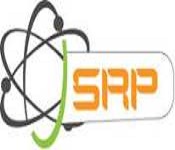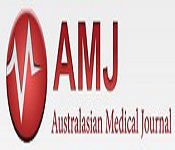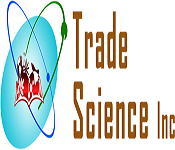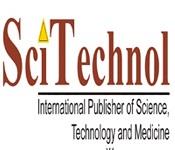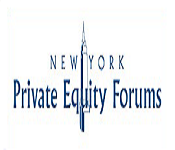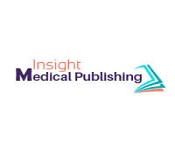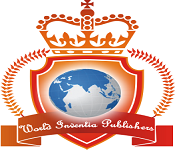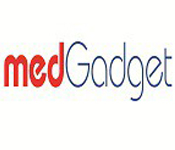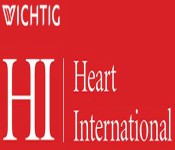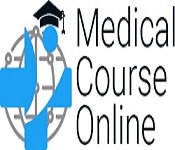CVD 2018
Details of Cardiovascular Diseases Conference 2018 in USA
Conference Series LLC Ltd invites all the participants from all over the world to attend “American Heart Congress - CVD" in Los Angeles, USA which presents talks and presentation from highly eminent persons and exhibition of Standard Companies. We organize Cardiology meetings in the fields of Cardiovascular diseases, Coronary Heart Diseases, Congenital Heart Defects, Cardiac Engineering, Cardiac Surgery, Pediatric Cardiology, Cardiomyopathy and Heart failure, Hypertension, Molecular Cardiology, Advances in Cardiology and Cardiovascular Genetics.
|
Conference Name
|
Place
|
Date
|
|
CVD 2018
|
Los Angeles, USA
|
Oct 05-06, 2018
|
Cardiovascular Diseases Conference 2018 is the best platform to meet and share the knowledge with eminent persons related to the academy and towards the industrial knowledge. CVD 2018 conference covers all the fields related to Cardio Vascular Diseases and its treatments. There will be many seminars, workshops and technical sessions take place which will catch the attention of the professionals to attend CVD 2018 conference and it would enormously enrich our knowledge in understanding the current requirements of the global Health and development of Mankind. The experts will get an excellent opportunity to give many presentations and lectures on a different topic and can also present their case studies.
The main aim and theme of the conference to Novel Insights In Cardiology and Healthcare. This conference brings together individuals who are interested in fields of Cardiology, cardiovascular diseases and approaching towards the conference gives the best platform to explore their ideas and explore the issues concerned to relevant topic and generate solutions. Cardiovascular Diseases has a top class Scientific Program with 2 days of scientific sessions. The program will feature new research discoveries, opportunities to learn from world-renowned experts and discussions with colleagues and peers. Cardiovascular Diseases is the leading cause of deaths globally compared to all the diseases. It is expected that 17.7 million deaths were reported only in 2015.
Conference Series LLC Ltd organizes 1000+Conferences Every Year across USA, Europe & Asia with support from 1000 more scientific societies and Publishes 900+Open access Journals which contains over 60000 eminent personalities, reputed scientists as editorial board members.
Invitation
Conference Series llc Ltd invites you to find a path to carve out a near-to-perfect platform where people like you and us can get together, stand together and discuss the Research and Outcomes in the field of Cardiology and its scientific arena.
CVD 2018 has been finalized to take place during October 05-06, 2018 in Los Angeles, USA and will initiate its journey towards its aim of unifying people around the globe with the theme “Novel Insights In Cardiology and Healthcare”
As the premier event, we have developed a program with your interests in mind. We have not only increased the number of opportunities for you to network with colleagues from across the world but also introduced more focused sessions that will feature cutting edge presentations, special panel discussions, and livelier interaction with Cardiology Associations and Societies.
Attend CVD 2018 to network with your peers, exchange expertise and experiences, and arm yourself with the latest information to take your research to the next level of advancement.
Come and join this felicitous event in Los Angeles and support us in making the Conference a huge success.
Sessions & Tracks
Cardiovascular Diseases
The CVD`s are group of disorders of the heart and the vessels. The diseases such as coronary heart disease, cerebrovascular disease, peripheral arterial disease, rheumatic heart disease, congenital heart disease, deep vein thrombosis and pulmonary embolism etc. It is estimated that 90% of CVD is preventable. Prevention of atherosclerosis is by decreasing risk factors through: healthy eating, exercise, avoidance of tobacco smoke and limiting alcohol intake. Treating high blood pressure and diabetes is also beneficial. Treating people who have strep throat with antibiotics can decrease the risk of rheumatic heart disease. Cardiovascular diseases are the leading cause of death globally.
Heart diseases
Heart Disease is a major cause of disability and premature death throughout the world. The underlying pathology is atherosclerosis, which develops over many years and is usually advanced by the time symptoms occur, generally in middle age. Acute coronary events (heart attacks) and cerebrovascular events (strokes) frequently occur suddenly, and are often fatal before medical care can be given. Heart Conferences promotes awareness against Risk factor modification which reduces clinical events and premature death in people with established cardiovascular disease as well as in those who are at high cardiovascular risk due to one or more risk factors
Cardiomyopathy and Heart failure:
Heart failure (HF), often referred to as chronic heart failure (CHF), occurs when the heart is unable to pump and maintain blood flow to meet the body's needs. Common causes of heart failure include coronary artery disease including a previous myocardial infarction (heart attack), high blood pressure, atrial fibrillation, valvular heart disease, excess alcohol use, infection, and cardiomyopathy of an unknown cause. These cause heart failure by changing either the structure or the function of the heart.
There are two main types of heart failure: heart failure due to left ventricular dysfunction and heart failure with normal ejection fraction depending on the ability of the left ventricle to contract is affected, or the heart's ability to relax. The severity of disease is usually graded by the degree of problems with exercise. Heart failure is not the same as myocardial infarction (in which part of the heart muscle dies) or cardiac arrest (in which blood flow stops altogether).Other diseases that may have symptoms similar to heart failure include obesity, kidney failure, liver problems, anemia and thyroid disease.
Coronary Heart Diseases:
Coronary Heart Diseases also known as coronary artery disease is caused due to narrowing of the coronary arteries, the blood vessels that supply oxygen and blood to the heart. Coronary heart disease (CHD) usually occurs when cholesterol accumulates on the artery walls, creating plaques which lead to the narrowing of arteries, reducing blood flow to the heart. When the plaque builds up in the arteries which occur over many years, the condition is called Atherosclerosis.
Congenital Heart Defects:
Congenital Heart defect is a problem with the structure of the heart, which is present at birth. Congenital heart defects are the most common type of birth defect which can involve the walls of the heart, the valves of the heart, and the arteries and veins near the heart. They can disrupt the normal flow of blood through the heart which can slow down the blood flow, and pumps in the wrong direction or to the wrong place, or be blocked completely. Many congenital heart defects cause few or no signs and symptoms and are often not diagnosed until adulthood. Treatment can include medicines, catheter procedures, surgery, and heart transplants depending on the type of the defect, its severity, child's age, size, and general health
Silent Ischemia and Ischemic Heart Disease::
Ischemia is a condition in which the blood flow (and thus oxygen) is restricted or reduced in a part of the body. Cardiac ischemia is the name for decreased blood flow and oxygen to the heart muscle. Silent Ischemia is these people have ischemia without pain — silent ischemia. They may have a heart attack with no prior warning. People with angina also may have undiagnosed episodes of silent ischemia. In addition, people who have had previous heart attacks or those with diabetes are especially at risk for developing silent ischemia. It's the term given to heart problems caused by narrowed heart arteries. When arteries are narrowed, less blood and oxygen reaches the heart muscle. This is also called coronary artery disease and coronary heart disease. This can ultimately lead to heart attack.
Hypertension:
High blood pressure also called hypertension is a serious medical condition. It happens when the force of the blood pumping through your arteries is too strong. When your heart beats, it pushes blood through your arteries to the rest of your body. When the blood pushes harder against the walls of your arteries, your blood pressure goes up. Your blood pressure may be different at different times of the day. It is usually higher when you first wake up, after you exercise, or when you are under stress. Having higher blood pressure for short amounts of time is normal. However, when your blood pressure stays high for most of the time, it can cause serious health problems.
Cardiac Nursing:
Cardiac nursing refers to the process of taking care of the patients suffering from heart diseases. It involves advanced cardiovascular care for patients such as the surgical tests, stress tests, cardiac monitoring and heath assessments. Cardiac nurses work in many different environments, including coronary care units (CCU), cardiac catheterization, intensive care units (ICU), operating theatres, cardiac rehabilitation centers, clinical research, cardiac surgery wards, cardiovascular intensive care units (CVICU), and cardiac medical wards.
Cardiovascular Pharmacology and Toxicology:
Cardiovascular Toxicology deals with the adverse effects on the heart or blood systems which result from exposure to toxic chemicals. It describes safety data of detrimental effects of new cardiovascular drugs. Pharmacology of vascular endothelium deals with alterations of endothelial cells and the vasculature play a central role in the pathogenesis of a broad spectrum of the most dreadful of human diseases, as endothelial cells have the key function of participating in the maintenance of patent and functional capillaries.
Molecular Cardiology:
Molecular Cardiology is a new and fast-growing area of cardiovascular medicine that aims to apply molecular biology techniques for the mechanistic investigation, diagnosis, prevention and treatment of cardiovascular disease. As an emerging discipline, it has changed conceptual thinking of cardiovascular development, disease etiology and pathophysiology. Although molecular cardiology is still at a very early stage, it has opened a promising avenue for understanding and controlling cardiovascular disease. With the rapid development and application of molecular biology techniques, scientists and clinicians are closer to curing heart diseases that were thought to be incurable 20 years ago. There clearly is a need for a more thorough understanding of the molecular mechanisms of cardiovascular diseases to promote the advancement of stem cell therapy and gene therapy for heart diseases.
Cardiac Oncology:
Cardiac Oncology is the discipline that concentrates on the intersection of heart diseases and cancer. This field is growing at a faster rate because the survivors after cancer therapies are more prone to develop cardiovascular disease. The increase in cancer disease in the world has led to the emergence of numerous chemotherapeutic agents which are under preclinical or clinical studies. These agents are potent to cause damage to the heart (carddiotoxicity). Cardiotoxic effects of chemotherapy might be decreased by the concurrent use of angiotensin-converting enzyme inhibitors, angiotensin receptor blockers or beta-blockers. The use of diagnostic imaging, noninvasive stress testing and ambulatory blood pressure monitoring and ambulatory cardiac telemetry can help to identify carddiotoxicity and lead to the development of preventative strategies
Cardiovascular Engineering:
Cardiovascular Engineering stimulates innovative methods and technological advancements in the basic understanding of the cardiovascular system and in cardiovascular diagnosis and treatment applications. Original Contributions outline new concepts and applications in cardiovascular mechanics, cardiology applications and diagnostic methods, cardiac and vascular imaging, devices and instrumentation, hemodynamic monitoring and measurements, cardiac assistance, vascular grafts and artificial hearts, cardiac electrophysiology techniques, computer modeling and drug delivery systems
Cardiac Surgery:
The surgeries done on the vessels of heart by the cardiac surgeons are known as cardiac surgery. Cardiac surgeries are implemented to treat ischemic heart diseases, congenital heart diseases, rheumatic heart disease including endocarditis. It also includes heart transplantation. Cardiopulmonary bypass techniques have reduced the mortality rates of these surgeries to relatively low ranks. Innovative advancements and researches are being made in cardiac surgery every day.
Heart Devices / CRT / ICD:
Implantable devices have been used for decades to treat heart disease. The first pacemaker was implanted over 40 years ago, and implantable defibrillators were first used in the early 1980s. But the last few years have witnessed a surge in both the types of devices being tested for heart-failure treatment, and in the optimism of experts about their usefulness
Advances in Cardiology:
Advances in Cardiology include the current research and new innovative methods that are emerging in the field of cardiology and its related fields. Advanced research in this field allows early detection of CHD in order to halt or reverse the progress of the disease. It focuses on the research related to devices, development of Nuclear Cardiology techniques for the detection of heart disease, drug development and evaluation of treatments used in heart disease, identification of novel biological markers to predict the presence of heart disease etc.
Pediatric Cardiology:
Pediatric Cardiology is a branch of medicine deals with heart related problems in new born, infants, children and adolescents. A pediatric cardiologist is a pediatrician who has received extensive training in diagnosing and treating children's cardiac problems. Currently, evaluating and treating the disease condition may begin with the fetus since heart problems can now be detected before birth. Hence this division is actively involved in therapeutic conclusion and treatment of preventing both congenital and acquired heart disease in children. Finally, the division is committed to educating the next generation of physicians and offers advanced training in pediatric cardiology.
Market Analysis
Market Value of Heart Diseases Research:-
Cardiac surgery is on the advance worldwide, includes, Arrhythmia Treatment, Heart Valve Repair or Replacement, Coronary Artery Bypass Grafting, Aneurysm Repair, Trans myocardial Laser Revascularization, Surgery to Place Ventricular Assist Devices and heart transplant.
U.S contributes 46% of world share in Cardiovascular Surgery devices. The global cardiology surgical & interventional cardiology devices market is may grow at the CAGR of 8%, and will contributes $83128.34 billion till 2022. The real ascent in the global cardiology surgical & interventional cardiology devices market is due to the increased prevalence of life style oriented diseases among the aging population. The global cardiology surgical & interventional cardiology devices market is divided into North America, Europe, Asia Pacific and Rest of the World. Among all, North America is the leader of the market having 46%of market shares, followed by Europe. North America is dominating country due to high prevalence of cardiovascular diseases & various technological advancements. Europe is the second major shareholder with 27% of market share in global cardiology surgical & interventional cardiology devices market. Asia pacific is the fastest growing market in this field due to increasing population & rapid development process. India & China are the major contributors in APAC region & are expected to fuel this market further.
Market Growth of Cardiovascular Diseases Research in the last and upcoming years:
The global cardiac device industry is growing rapidly and exhibits signs that it will continue to evolve and expand to reach over $97 billion by 2017, up from nearly $85 billion in 2010 according to a study from BCC Research.
Medical Products manufactured by the industry related to Heart Diseases research globally:-
Pacemakers
Implantable defibrillators Stents
Remote Patient Management
Vascular/Surgical Devices
Small Molecules
Heart valve corrective device
Stents
Specialized medicines
Medical Diagnostic Instruments
Single-use cardiovascular medical devices









